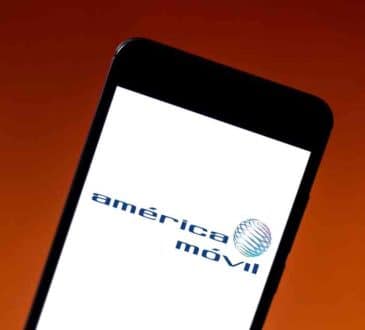NOTHING BUT BLUE SKIES: Pioneering a new business model to increase the adoption of electric vehicles

The U.S. was the first country to implement standards for greenhouse gas (GHG) emissions and fuel economy in 1975 with the National Program for Light-Duty Vehicle GHG Emissions and Corporate Average Fuel Economy Standards. Since then, dozens of countries have focused on reducing GHG, envisioning, and developing cleaner transportation solutions that put the environment first.
A quick look at the policies database from the International Energy Agency provides an impressive scope of the initiatives worldwide to battle climate change. Many countries offering incentives for EV adoption, such as corporate tax breaks, zero duty on import, purchasing support, charging infrastructure investment, and subsidy programs to accelerate the installation of EV charging stations.
In the private sector, there has never been more opportunity, not just for companies like Ideanomics, which focuses on every aspect of commercial fleets, but companies in the broader automotive space. In addition to the EVs themselves, there’s going to be a shift in energy demand away from diesel and gasoline as EVs become mainstream. In fact, we believe this is an even greater opportunity than EVs. It’s one of the reasons Ideanomics is involved in the whole value chain, from sales to financing to charging—what we call S2F2C. Through our division called Mobile Energy Global (MEG) that is facilitating EV enablement for commercial fleet operators, we believe our unique S2F2C model will help bring fleet operators over from traditional fossil fuel vehicles to all-electric, while moving quickly, economically, and efficiently.
We started in China because it is the market leader in mass transit and commercial fleet EV adoption. They have an aggressive strategy in place, which includes a complete transition to electric or hydrogen for all its city buses, including tour buses, by the end of 2022. It began in 2018 with a three-year action plan called the “Blue Sky War.” In 2020, the Chinese State Council issued an update called “The Three-Year Action Plan for the Battle of the Blue Sky,” which is intended to accelerate the original plan. It includes agreements with 24 provinces and cities, of which Ideanomics’ MEG group is actively working with seven of the priority regions.
It’s important to note that China can be very strategic in its policies because of its government structure. Because there are no elections, there are obviously no opposing parties with agendas to consider (a bright side to everything). A recent example is the stimulus package announced in March that targets new infrastructure in seven areas, one of which is EV charging. Already the world leader in charging stations and EVs, with 3.8 million EVs on the road in 2019, China hopes to boost consumer purchasing while supporting existing fleets by further expanding its charging infrastructure.
Leading a U.S.-based company focused on clean energy but with a significant amount of our operations focused in Asia has been as challenging as it has been exciting. Working closely with partners and provinces in China, we understand that its successful execution of EV adoption, particularly among commercial fleets, has largely been the result of government support, with billions of dollars subsidizing EV and battery manufacturers. In the U.S., one of the hurdles for commercial EV adoption has been bridging the financing gap. Because EVs are relatively new and have a difficult residual value estimate due to lack of historical resale values and the fact that the battery, which is removable, can be up to 50% of the vehicle’s total value, lenders require large cash deposits based on the percentage of the vehicle’s Blue Book® value. In some cases, this can be as high as 50% of a vehicle’s value versus around 10% to 20% for conventional combustion engine vehicles. Consequently, only the wealthiest fleet operators are able to provide large, upfront cash deposits to purchase thousands of vehicles. Meanwhile, the majority of fleet operators are mid- and small-sized companies and likely unable to shoulder this cost from their long-established, low-margin business models. EV subsidies have been helpful to date, but their role has mostly been as an offset to the higher cost of electric vehicles. As EV production and technology ramps up, we anticipate those subsidies will be phased out and the resulting cost of an EV will begin to settle around the cost of its combustion engine cousin.
To solve this, Ideanomics has created a financing model—part of the S2F2C approach—to enable fleet operators to purchase EVs without providing the necessary large cash deposit. Working with its financing partners, which include stakeholders in electrification such as insurance firms and utility companies, we put together a consortium of partners to provide financing more in line with the lease financing terms that currently align with the commercial fleet operators balance sheet. Offering competitive lease financing terms on EVs enables operators to confidently make the switch to clean energy and unlock the additional return on investment EVs deliver through reduced energy, servicing and maintenance costs. That’s just one of three cornerstones of our approach to EV adoption that we believe will become the Gold Standard.
In many ways, our work in China has afforded us a front-row seat to the future and what is possible here in the U.S. where dozens of states have implemented environmental measures and goals focused on fleet electrification. But widespread adoption will require an EV infrastructure and education, with support across the entire value chain. Converting commercial vehicles to clean energy will not only have a major impact on reversing the negative effects of climate change but will also open up business opportunities as more people understand the important connection between economic recovery and the environment. Rather than continue along the path most resistant to changes that benefit the environment, companies focusing forward on renewable energies and sustainable transportation systems that promise economic benefits for the long term will find the lanes are wide open.
Commentary by Alf Poor. Here’s what you’ve missed?
World’s Best Business Schools.
World’s Best Hospitality And Hotel Management Schools.
World’s Best Countries For Education System.
World’s Best Countries For A Child To Be Born In.
Add CEOWORLD magazine to your Google News feed.
Follow CEOWORLD magazine headlines on: Google News, LinkedIn, Twitter, and Facebook.
This report/news/ranking/statistics has been prepared only for general guidance on matters of interest and does not constitute professional advice. You should not act upon the information contained in this publication without obtaining specific professional advice. No representation or warranty (express or implied) is given as to the accuracy or completeness of the information contained in this publication, and, to the extent permitted by law, CEOWORLD magazine does not accept or assume any liability, responsibility or duty of care for any consequences of you or anyone else acting, or refraining to act, in reliance on the information contained in this publication or for any decision based on it.
Copyright 2024 The CEOWORLD magazine. All rights reserved. This material (and any extract from it) must not be copied, redistributed or placed on any website, without CEOWORLD magazine' prior written consent. For media queries, please contact: info@ceoworld.biz
SUBSCRIBE NEWSLETTER








